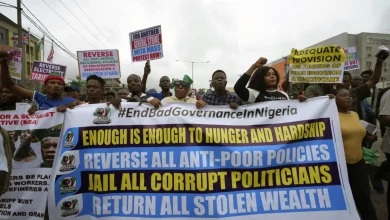
Nigeria is ranked the second highest in terms of climate risk for children globally, according to UNICEF’s 2024 State of Nigeria’s Children Report.
The report paints a bleak picture of the conditions faced by the country’s 110 million children, who constitute nearly half of Nigeria’s total population. It reveals that 4.9 million children urgently require humanitarian assistance, and one in two children lives in poverty.
Key indicators highlighted in the report include a newborn mortality rate of 41 per 1,000 live births, while 2.1 million children have never been vaccinated against childhood diseases.
Almost 70% of Nigerian households lack access to safe drinking water, and 40% of children under five are stunted due to malnutrition. The education sector fares no better, with 18.3 million out-of-school children, 73% of 7-to-14-year-olds unable to understand simple sentences, and 75% unable to perform basic arithmetic. Additionally, the teacher-student ratio remains alarmingly low, with a deficit of 200,000 trained teachers. Violence is another stark issue, as 90% of children under five experience some form of violence.
Speaking on the findings, UNICEF Nigeria Representative Cristian Munduate stressed the urgency of addressing these challenges. “The prosperity of Nigeria must start with children,” she said. “We need to prioritize programs to address malnutrition, access to education, violence, and health. These are not just needs; these are lives. This is a call to action.”
Minister of Budget and Economic Planning, Atiku Bagudu, emphasized the government’s commitment to tackling these issues, noting that the report will serve as a tool for strategic planning and intervention. “This national document highlights the many varied and interrelated challenges faced by Nigerian children and provides a framework for developing effective interventions,” he said. “The government is committed to reducing child poverty and improving the lives of every child and adolescent in Nigeria through accelerated economic growth, social protection programs, and investments in health and education.”
Tayo Aduloju, CEO of the Nigerian Economic Summit Group, described the findings as an “existential crisis” threatening the nation’s future. “The combination of schooling and learning poverty reflects the crisis,” he said, warning that the stunting of children undermines Nigeria’s human capital. Aduloju pledged continued collaboration with the private sector to address the challenges.
UNICEF called for increased investment in health, education, and child protection, noting that Nigeria’s current budget allocations fall short of international benchmarks.
The report serves as a sobering reminder of the urgent action required to safeguard the rights and future of Nigeria’s children.





